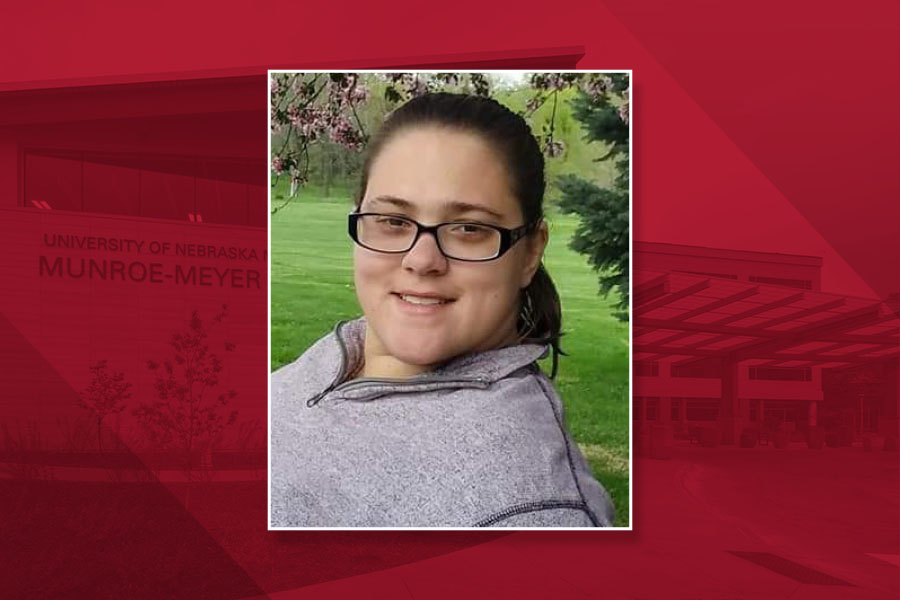Melanie Davis, advocate mentor at the Munroe-Meyer Institute, appreciates plain speaking.
As an intern at MMI, she once nearly missed an assignment because she did not understand the staff meeting notes and the written department goals well enough.
“They didn’t realize they were not presenting the information in a way that someone on the staff could understand,” she said.
“When you meet me, I’m pretty articulate. I can speak very well. But my reading skills are different. I take in information in a completely different way. People don’t realize I need that assistance, and sometimes I don’t know to ask for it.”
Davis will be creating various resources on plain language, starting with two documents for use on the MMI website – a document that explains the acronyms of the professionals that work at MMI and a document containing information on how to volunteer to serve on the boards of various organizations.
The goal of this effort, she said, is to demystify pathways and increase access for people with disabilities. It is the first step in what she sees as an eventual institute-wide effort to write in simpler language to be more accessible to clients and their families.
Plain language has been a priority for the Association of University Centers for Disabilities (AUCD), of which MMI is a member. (See the AUCD resource center website on the use of plain language.)
The credentials breakdown tip sheet, she said, will aid those MMI serves in achieving the best access to care by explaining the professional credentials behind sometimes confusing acronyms.
She also has created an organization list consisting of nonprofits and other groups that have community boards, to direct those with lived experience to resources and potential advocacy opportunities.
Davis sees multiple benefits to the credential breakdown.
“The advantage is not just from the advocacy side — being aware of the exact training of the therapist — but it’s also a way to break down an employment barrier by providing more understanding of the amount of training and education required for these jobs.
“Often, people with disabilities are told, ‘Oh, you can be a receptionist,’ and we’re not conditioned to think that there is more than that.”
Demystifying credentials through the tip sheet, she said, may also suggest possible pathways for people interested in exploring these jobs,
The organization list “is the product of a focus group I did at a People First conference in Kearney last year,” Davis said. “A lot of people with disabilities find that they don’t know where to go if they want to serve on a board. They don’t know what organizations are available. There’s no resource that tells them.
“I’ve tried to come up with documents in plain language that list, for example, information on what a school board does.
“Your experience may be helpful at your local school board, at your local city council. Did you know there’s a National Epilepsy Foundation?
“Families get a diagnosis and get thrown pamphlets upon pamphlets. Where do they all go? On the dining room table buried under the kids homework? My intent is to try to get through some of that clutter.”
Davis is hoping to provide plain language writing tips each month in MMI Monthly and on MMI social media pages.
“This is a yearlong campaign, so at approximately the midyear mark, perhaps around Disability Pride or ADA anniversary month, I’d like to do an institute webinar on how to use plain language. MMI needs to be a leader in plain language.”
Clearer language leads to better understanding, which makes it more likely clients will follow through correctly with suggestions or treatment instructions, Davis said.
“It helps create rapport between the provider and the patient.”
